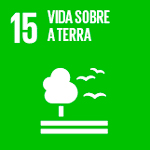FORESTS
Favorable business environments and strong public institutions are key factors for developing the country's forestry potential in a sustainable way
Brazil has a large forest coverage: the second largest in the world, second only to Russia. The Brazilian forest-based sector is responsible for about 3.5% of Brazil's GDP (2007), which is equivalent to US$ 37.3 billion, and for 7.3% of the country's total exports, which corresponds to $10.3 billion. The sector is also responsible for generating approximately 7 million jobs.
The planted forest sector has integrated production and a complex production structure, including producers of equipment, inputs, engineering projects, and forest products companies. However, even with a significant participation in the national economy, there is still room to expand production and add value to forest products in the country.
The segment responsible for the sustainable exploitation of native forests still deals with elevated levels of illegality and low competitiveness. The legal native forest base sector has difficulties expanding its business, especially in the Amazon Region, due to the restrictions imposed by legislation in light of the environmental appeal that the region awakens.
Illegality should be tackled in order to build a suitable environment to face the technical, regulatory, and political challenges to the development of a tropical timber market. Command and control actions should be implemented using intelligence, information, and control tools available, without increasing red tape.
The expansion of forest concessions of public areas, based on sustainable forest management, is an opportunity to expand the supply of tropical wood from native forests and an important strategy to conserve the remaining forest areas.
The construction of a favorable business environment and the strengthening of institutions that deal with the issue are key factors for improving the sector's competitiveness and for developing the country's forestry potential, both for planted and native forests.
Regarding native forests, the policy of forest concessions was selected as one of 16 strategic projects of the Ministry of Agriculture, Livestock and Food Supply (Mapa). Under the name of PEC 06, its main goal is to promote the expansion of forest production from native forests, through a 300% increase in the area of federal public forests under a forest concession regime, thus jumping from the current 1.05 million hectares of granted forests to 4.2 million hectares.
Key messages
The sustainable use of native forests, through management plans, is crucial in the strategy for the conservation of standing forests, especially in public areas.
The fight against deforestation and illegal burning is fundamental for environmental conservation and for strengthening the forest industry on a sustainable basis in Brazil.
The sustainable development of the Amazon should start from its riches and its vocations, including investments in bioeconomy and sustainable forest management.
CNI is the main organization representing Brazilian industry. Its challenge is to increase the competitiveness of Brazilian industry by influencing the policy environment. To this end, it engages in policy dialogue with Congress, the federal government and the judiciary.

Customer Service
(61) 3317 9989
(61) 3317 9992
CNI - Headquarters Brasilia
SBN - Quadra 1 - Bloco C
Ed. Roberto Simonsen
Brasília - DF CEP 70040-903
(61) 3317 9000
(61) 3317 9994 (Fax)
São Paulo Office
Surubim street, 504 - Brooklin Novo
São Paulo - SP CEP 04571-050
CNI - Phone. (+55 11) 3040 3860
IEL - Phone. (+55 11) 3040 3370







